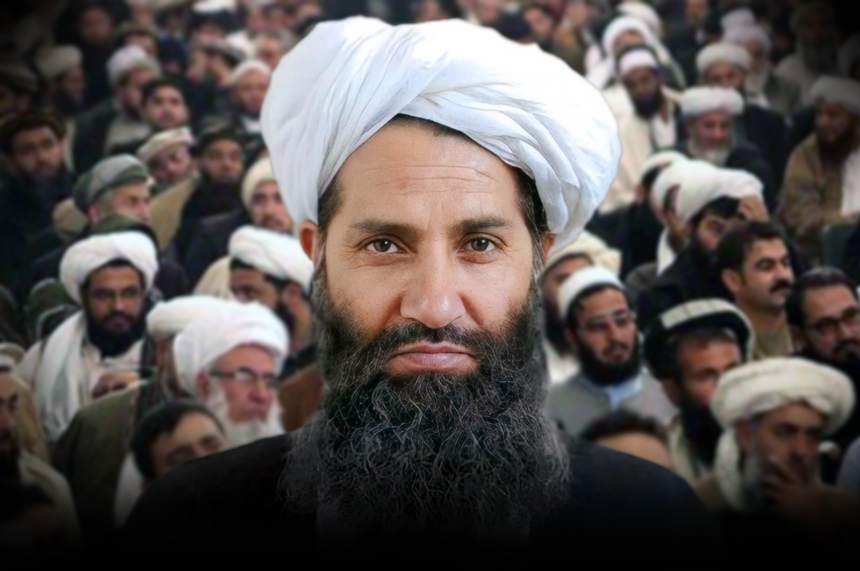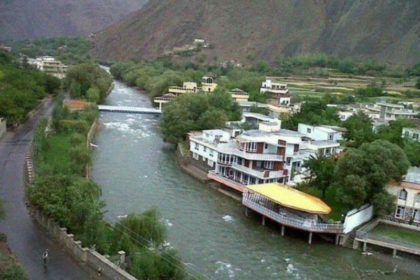RASC News Agency: In a stark display of autocratic ambition cloaked in religious rhetoric, Taliban supreme leader Hibatullah Akhundzada has demanded absolute and unconditional obedience to his decrees, reinforcing the group’s efforts to entrench a rigid theocratic regime in Afghanistan. Speaking at a carefully curated gathering of pro-Taliban clerics in Herat, Akhundzada not only underscored the necessity of unwavering compliance with his orders but also called upon the population to submit to the authority of religious scholars a reference to clerics loyal to his fundamentalist ideology. According to a statement released by the Taliban’s press office, Akhundzada met on Tuesday with a selection of so-called “religious scholars” aligned with the group. He used the occasion to emphasize the need for resolving internal disagreements, reducing animosity, and focusing on the hardships of the people sentiments that ring hollow amid mounting evidence of the regime’s internal dysfunction and widespread public discontent.
In a revealing section of his speech, Akhundzada voiced concern over what he termed “deliberate attempts to weaken the Islamic system,” alleging that unnamed actors are fostering division among clerics, eroding public trust in the religious class, and tarnishing the reputation of Islamic scholars. While cloaked in concern for religious unity, his remarks were clearly aimed at suppressing dissent and deflecting from growing frustration among both ordinary citizens and clerics disillusioned with the Taliban’s authoritarianism and its exploitation of Islam for political control. Akhundzada reiterated that following the ulama the Islamic clerical class is a religious obligation for the people, asserting that these figures are accountable only to God. However, within Taliban discourse, the term “ulama” has been weaponized to refer exclusively to clerics who endorse the regime’s ultra-conservative, punitive interpretation of Islam. By conflating religious devotion with political obedience, Akhundzada is not only distorting the function of Islamic scholarship but also silencing critical voices within the broader Muslim community.
In a revisionist assessment of Afghanistan’s post-2001 era, Akhundzada described the two decades of constitutional governance as a time marked by “moral decay,” alleging that the spiritual and ethical fabric of society was undermined during those years. Such narratives serve to delegitimize an era in which Afghanistan saw unprecedented expansion of civil liberties, women’s rights, and democratic engagement gains that have since been systematically dismantled under Taliban rule. Attempting to present an image of unity, the Taliban leader dismissed reports of infighting within the group’s leadership structure, claiming there are “no divisions, factions, or obstacles” within the Taliban’s so-called Islamic Emirate. This assertion directly contradicts numerous credible reports pointing to severe ideological and strategic fractures among Taliban officials, especially over governance, foreign policy, and the rights of women.
One of the most glaring examples of this internal discord was the public criticism voiced by Taliban Interior Minister Sirajuddin Haqqani, who has challenged the excessive centralization of power within the group’s leadership. Similarly, Sher Mohammad Abbas Stanikzai, the regime’s former deputy foreign minister, fled to the United Arab Emirates after opposing the closure of educational institutions to women a stance that led to a reported arrest order issued by Akhundzada himself. At the conclusion of the Herat meeting, the Council of Religious Scholars once again pledged its allegiance to Akhundzada’s leadership and declared support for the Taliban’s rule a declaration that further exposes the political function of religious institutions under Taliban control, reducing them to instruments of propaganda rather than guardians of spiritual or moral guidance.
While Akhundzada speaks fervently about piety and moral authority, leading Islamic scholars across the Muslim world have repeatedly condemned the Taliban’s theological exclusivism and lack of tolerance for religious diversity. The regime recognizes only its narrow, extremist interpretation of the Deobandi-Hanafi school and categorically rejects other Islamic traditions, labeling them as heretical or deviant a stance that runs counter to the pluralism historically embraced within Islamic jurisprudence. Over the past four years, the Taliban has systematically curtailed the rights of religious minorities and adherents of other Islamic sects, often subjecting them to coercion and forced conversions. In numerous cases, Taliban commanders have pressured citizens to abandon their traditional beliefs and adopt the group’s interpretation of Islam a campaign that has drawn sharp condemnation from international human rights bodies, civil society organizations, and moderate Islamic scholars.
As the Taliban intensifies its efforts to control not only the political apparatus but also the spiritual lives of Afghanistani citizens, Akhundzada’s latest speech underscores the regime’s growing paranoia and desperation. Rather than projecting the strength of a legitimate government, the Taliban’s rhetoric reveals the insecurities of a repressive theocracy increasingly isolated from the complex religious, ethnic, and cultural mosaic that defines Afghanistan.






